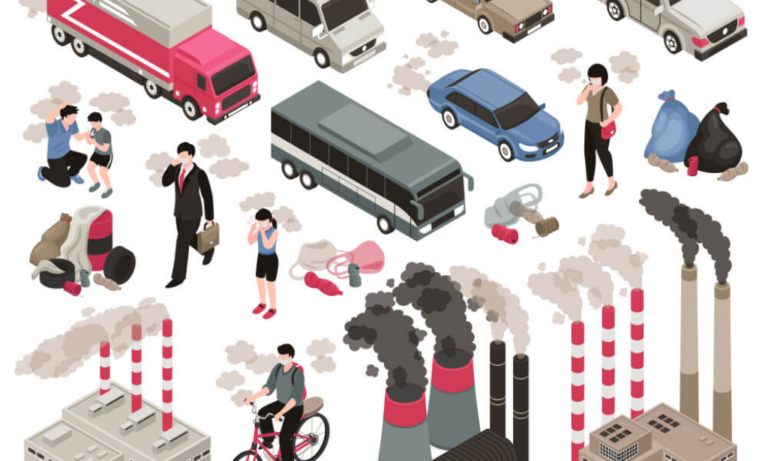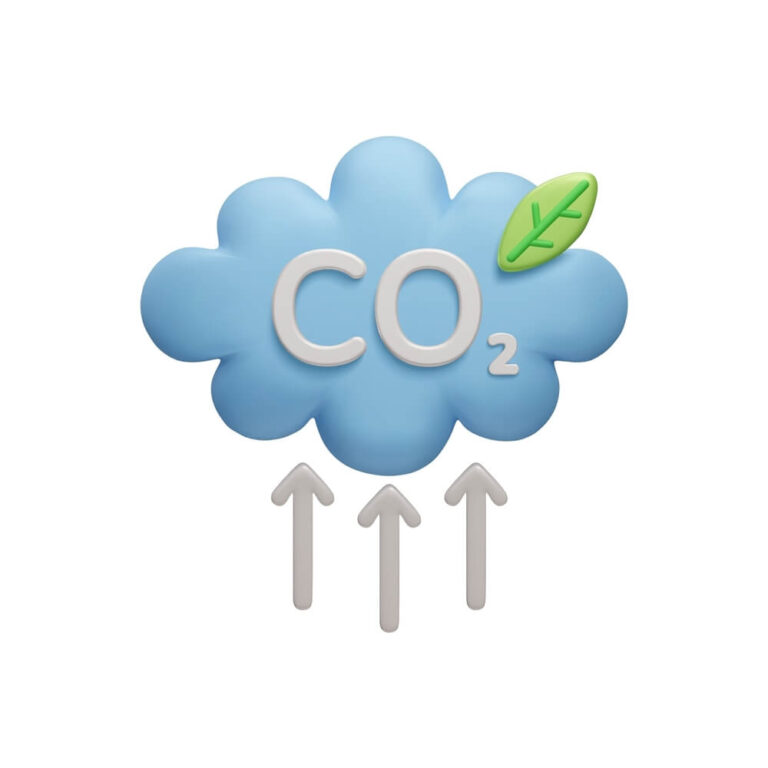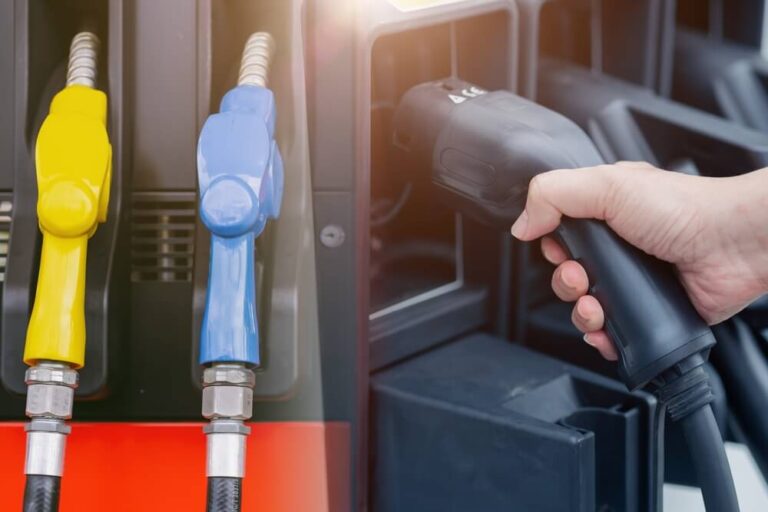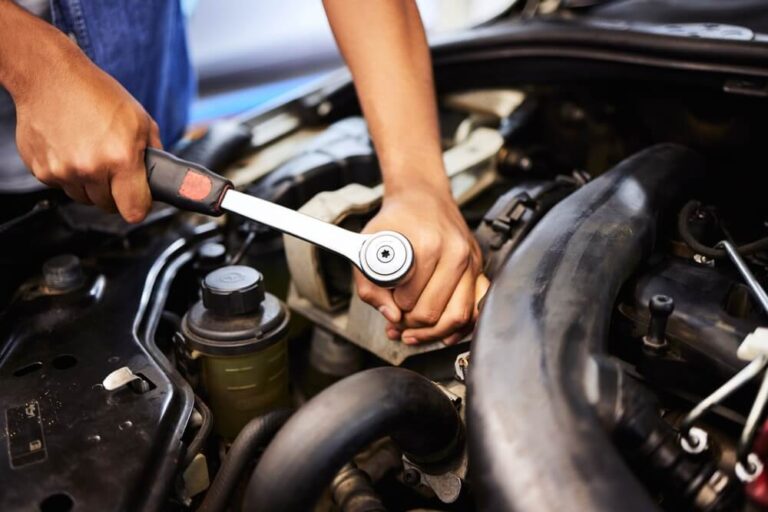

In the United Kingdom, poor air quality is one of the largest environmental risks to public health. According to the government’s statistics, 24% of the UK’s carbon emissions are due to transport. Vehicle pollutants are harmful to the environment and health. Due to the emissions from the combustion of fossil-derived fuels, motor vehicles lead to degraded air quality and climate change. It also leads to noise pollution and water pollution and affects ecosystems through multiple direct and indirect interactions. The good news is that you, as an individual, can make a significant impact. Read on to understand how can you reduce the environmental harm caused by your motor vehicle.
Table of Contents

Why Do We Need to Reduce Air Pollution?
Air pollution is a global concern. It leads to significant public health concerns, increasing the risk of cancer, heart disease, stroke and respiratory disease for almost everyone. On top of that, it impacts our natural environment, the economy, and the trajectory of climate change. Around 99% of the world’s population lives in areas where air pollution goes beyond the guidelines set by the World Health Organisation. One of the most significant contributors to air pollution is the transportation system.
Vehicle pollutants are harmful to health. They contain greenhouse gases that cause climate change and can lead to a range of health issues. It’s vital to reduce air pollution to create a cleaner environment and minimise the many adverse health impacts on local populations. Moreover, limiting air pollution can also benefit your business. There will be a lower risk of health problems among staff and visitors, which will help you avoid staff sickness and compensation claims. Learn more about how can you reduce the damage your vehicle causes to the environment.
How can you Reduce the Environmental Harm Caused by your Motor Vehicle?
How can you reduce the damage your vehicle causes to the environment? Small changes in your driving habits can significantly impact the environment. Henceforth, we recommend drivers consider the following steps:
Drive Less
How can you reduce the environmental harm caused by your motor vehicle? Reducing the amount of miles you drive by a percentage is the best way to reduce air pollution from motor vehicles. Here are the steps you can follow to spend less time driving:
- Plan your route
- Walk or bike when possible
- Use a bike share program if your city or town has any
- Take public transportation whenever possible
- Travel by carpool rather than driving alone
- Use ride-sharing services
- Plan ahead and create a "trip chain" to spend less time on the road. For instance, if your grocery store is close to other places you need to go, do everything at once.
- Work from home if your office allows you to for a set number of days.
Drive Wise
If you are wondering how can you reduce the damage your vehicle causes to the environment, remember that the way you drive impacts how much pollution your car emits. Find tips to reduce emissions, drive more safely, and save more on fuel costs:
- Drive efficiently—Be gentle on the gas pedal and brakes.
- Take your car for regular maintenance—get frequent tune-ups, adhere to the manufacturer's maintenance schedule, and use the recommended motor oil.

Choose Fuel Efficient Vehicles
When purchasing a new car, go for lighter and fuel-efficient vehicles with low greenhouse gas emissions. These cars will help you save money on fuel costs. You can also opt for electric vehicles that produce fewer planet-warming emissions.
Here’s a list of vehicles that are more efficient and less polluting:
- Electric vehicles
- Plug-in hybrid electric vehicles
- Hydrogen fuel cell vehicles
- Cleaner burning gasoline vehicles.
Avoid Unnecessary Idling
Unnecessary idling of vehicles can pollute the air, waste fuel, damage vehicles and harm our health. Today, many modern cars don’t need much time for the engine to warm up, especially in cold conditions. As a result, there’s no need to turn on the car for an extended period.
Again, an idling school bus is a big obstacle. It releases harmful gases, chemicals, and particle pollution into the air. How can you reduce the damage your vehicle causes to the environment? Reducing the idling of school buses can save fuel, improve air quality, and protect the driver and children from being exposed to diesel exhaust.
Use Public Transportation or Alternatives
If possible, use buses, trains or other available transport for the public in order to reduce dependence on personal vehicles. Therefore, it leads to less number of private vehicles on the road and reduced emissions. Moreover, you can consider biking or walking for shorter distances, which causes no emissions.

Get your Vehicle Serviced Regularly
Routine checkups can help detect impending problems and keep everything working efficiently. They also improve vehicle performance and minimise environmental impact. You can routinely perform tune-ups, oil changes, and air filter replacements. Meanwhile, make sure tyres are properly inflated and aligned to improve fuel efficiency and reduce emissions.
Conclusion
Motor vehicles have many environmental externalities. The combustion of gasoline and diesel fuel produces hazardous byproducts such as nitrogen dioxide, carbon monoxide, hydrocarbons, benzene, and formaldehyde. Furthermore, cars emit CO2, the most common human-caused greenhouse gas. By reducing air pollution levels, you can avoid many health problems as well as protect the natural environment. In this blog, we have discussed how can you reduce the environmental harm caused by your motor vehicle.
How can you reduce the environmental harm caused by your motor vehicle FAQs
How can I reduce my car’s carbon emissions?
How can you reduce the damage your vehicle causes to the environment?
Drive efficiently by maintaining a steady speed and avoiding rapid acceleration. Meanwhile, maintain good tyre pressure. You can consider switching to an electric or hybrid vehicle.
What are eco-friendly driving habits?
Avoid idling, reduce excessive loads, carpool when possible, and plan routes to avoid congestion.
Should I switch to an electric or hybrid vehicle?
Yes, electric and hybrid cars emit significantly less CO2 and other pollutants than petrol or diesel vehicles, helping to reduce air pollution and carbon footprints.
What’s the impact of driving a smaller car?
Smaller, lighter cars consume less fuel and emit less CO2, making them more environmentally friendly.
Are there government incentives for eco-friendly vehicles in the UK?
Yes, the UK offers grants for electric vehicles, exemptions from congestion charges, and lower road tax rates for low-emission vehicles.
How can regular maintenance help the environment?
How can you reduce the environmental harm caused by your motor vehicle? Regular servicing improves fuel efficiency, reduces emissions, and ensures your car runs smoothly, lowering its environmental impact.
- All Courses
- Accounting & Finance61
- Admin, Secretarial & PA45
- Audio Books (Audio Course)100
- Business Skills155
- Design76
- Digital Marketing48
- DIY (Do It Yourself)57
- Employability238
- Food Hygiene & Safety18
- Health & Fitness67
- Health & Safety107
- Health & Social Care180
- Human Resource49
- It & Software Skills111
- Language27
- LIFESTYLE85
- MAKEUP & BEAUTY50
- Management128
- Marketing60
- Massage & Physiotherapy24
- Microsoft Office64
- Nonprofit & Charity58
- On Demand Courses51
- Personal Development123
- Photography32
- Psychology & Counselling96
- SEN (Special Educational Needs)23
- Teaching and Education95














